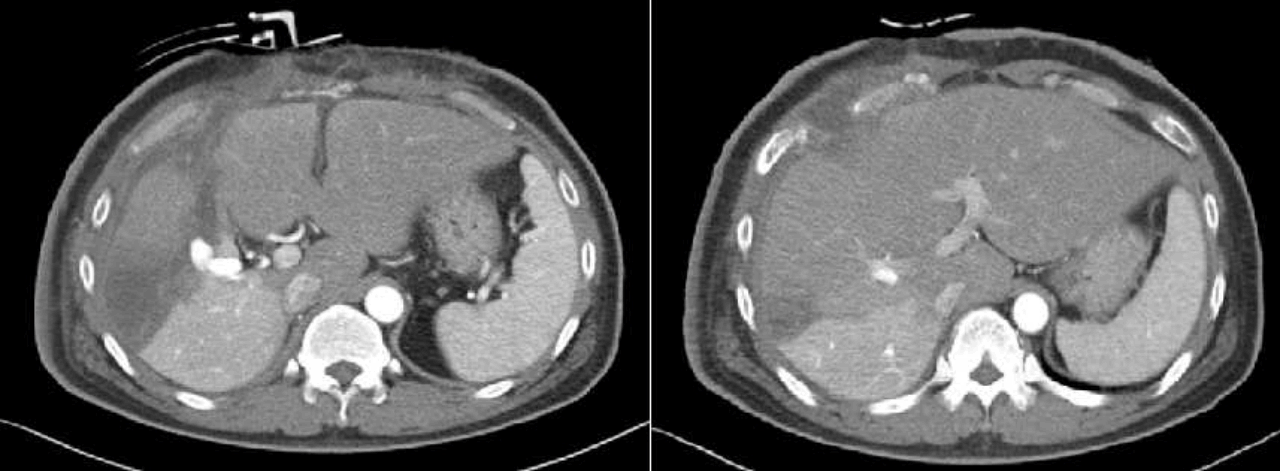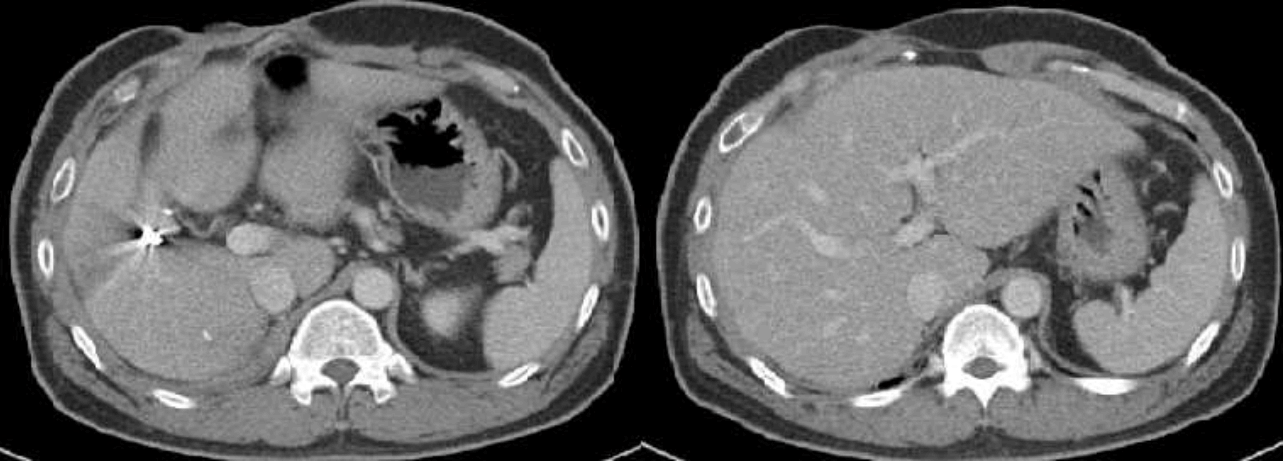CASE
A 46-year-old male was stabbed in the right chest and transported to the trauma bay. The patient was alert. His initial vital signs were as follows: blood pressure, 100/60mmHg; pulse, 122 beats/min; respiratory rate, 21 breaths/min; and body temperature, 35┬░C. Emergency laparotomy was performed, which revealed that hepatic segment 6 was penetrated and had a 6-cm long penetrating wound. Primary suture closure and perihepatic packing of the lacerated liver were performed. One day postoperatively, the patientŌĆÖs vital signs were not optimized, and a second-look operation revealed a newly developed right adrenal gland laceration and perforation of inferior vena cava (IVC). Right adrenalectomy and primary closure of IVC were performed. At 27 days after the initial operation, abdominal CT scan revealed a hepatic APF (Fig. 1.). The APF was successfully occluded by hepatic embolization (Fig. 2.). Abdominal CT repeated 6 months after the operation (Fig. 3.) revealed that the APF and ischemic lesion of the liver had disappeared.
DISCUSSION
APF can be asymptomatic but can cause complications, such as portal hypertension, which can lead to gastrointestinal bleeding, ascites, heart failure, and intestinal ischemia [1,2]. In this patient, the hepatic ischemia might have been a complication of APF. Currently, angioembolization is the treatment of choice for most APFs [1,2]. Effective treatment requires expertise in determining the location of the fistula and achieving superselective catheterization and complete occlusion of all feeding arteries. APFs should be diagnosed early because complications can be serious and spontaneous resolution is rare. An angiography can confirm the diagnosis [1,2]. The angioembolization for the APF is curative in a high percentage of patients with little morbidity.











